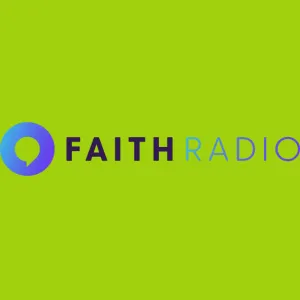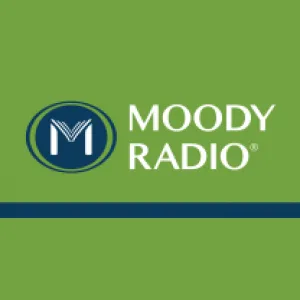American Voice Radio
0
Share
0
0
[
Listen Live
]Voice of America (VOA) is the official external radio and television broadcasting service of the United States federal government. Its oversight entity is the Broadcasting Board of Governors (BBG). VOA provides a wide range of programming for broadcast on radio, TV and the Internet around the world in forty-four languages, promoting a positive view of the United States. Its day-to-day operations are supported by the International Broadcasting Bureau (IBB).
World War II: VOA BeginsEven before the Japanese attack on Pearl Harbor, ... See more
704-772-7627
[email protected]
American Voice Radio Network6500 Shadow Glen, Eagle Point, Oregon 541.826.9050
http://www.theamericanvoice.com
Views:
0Recommended radio stations:
Voice of America (VOA) is the official external radio and television broadcasting service of the United States federal government. Its oversight entity is the Broadcasting Board of Governors (BBG). VOA provides a wide range of programming for broadcast on radio, TV and the Internet around the world in forty-four languages, promoting a positive view of the United States. Its day-to-day operations are supported by the International Broadcasting Bureau (IBB).
World War II: VOA BeginsEven before the Japanese attack on Pearl Harbor, the U.S. government's Office of the Coordinator of Information began providing war news and commentary to the commercial American shortwave radio stations for use on a voluntary basis. Direct programming began shortly after the United States' entry into the war. The first live broadcast to Germany, called Stimmen aus Amerika ("Voices from America") took place on Feb. 1, 1942. It was introduced by "The Battle Hymn of the Republic" and included the pledge: "Today, and every day from now on, we will be with you from America to talk about the war. . . . The news may be good or bad for us -- We will always tell you the truth."
The Office of War Information took over VOA's operations when it was formed in mid 1942. The VOA reached an agreement with the British Broadcasting Corporation to share medium-wave transmitters in Britain, and expanded into Tunis in North Africa and Palermo and Bari, Italy as the Allies captured these territories. The OWI also set up the American Broadcasting Station in Europe.[14]
Asian transmissions started with one transmitter in California in 1941; services were expanded by adding transmitters in Hawaii and, after recapture, the Philippines.[15]
By the end of the war, VOA had 39 transmitters and provided service in 40 languages.[16] Programming was broadcast from production centers in New York and San Francisco, with more than 1,000 programs originating from New York. Programming consisted of music, news, commentary, and relays of U.S. domestic programming, in addition to specialized VOA programming.[17]
About half of VOA's services, including the Arabic service, were discontinued in 1945.[18] Also in 1945, VOA was transferred to the Department of State.Post Cold War (1991 – present): Changes in servicesWith the break up of the Soviet bloc in Eastern Europe, VOA added many additional language services to reach those areas. This decade was marked by the additions of Tibetan, Kurdish (to Iran and Iraq), Croatian, Serbian, Bosnian, Macedonian, and Rwanda-Rundi language services.
In 1994, President Clinton signed the International Broadcasting Act into law. This law established the International Broadcasting Bureau as a part of the U.S. Information Agency and created the Broadcasting Board of Governors with oversight authority. In 1998, the Foreign Affairs Reform and Restructuring Act was signed into law and mandated that BBG become an independent federal agency as of October 1, 1999. This act also abolished the U.S.I.A. and merged most of its functions with those of the State Department.
In 1994, the Voice of America became the first[28] broadcast-news organization to offer continuously updated programs on the Internet. Content in English and 44 other languages is currently available online through a distributed network of commercial providers, using more than 20,000 servers across 71 countries. Since many listeners in Africa and other areas still receive much of their information via radio and have only limited access to computers, VOA continues to maintain regular shortwave-radio broadcasts.
The Arabic Service was abolished in 2002 and replaced by a new radio service, called the Middle East Radio Network or Radio Sawa, with an initial budget of $22 million. Radio Sawa offered mostly Western and American popular music with periodic brief news bulletins.
World War II: VOA BeginsEven before the Japanese attack on Pearl Harbor, the U.S. government's Office of the Coordinator of Information began providing war news and commentary to the commercial American shortwave radio stations for use on a voluntary basis. Direct programming began shortly after the United States' entry into the war. The first live broadcast to Germany, called Stimmen aus Amerika ("Voices from America") took place on Feb. 1, 1942. It was introduced by "The Battle Hymn of the Republic" and included the pledge: "Today, and every day from now on, we will be with you from America to talk about the war. . . . The news may be good or bad for us -- We will always tell you the truth."
The Office of War Information took over VOA's operations when it was formed in mid 1942. The VOA reached an agreement with the British Broadcasting Corporation to share medium-wave transmitters in Britain, and expanded into Tunis in North Africa and Palermo and Bari, Italy as the Allies captured these territories. The OWI also set up the American Broadcasting Station in Europe.[14]
Asian transmissions started with one transmitter in California in 1941; services were expanded by adding transmitters in Hawaii and, after recapture, the Philippines.[15]
By the end of the war, VOA had 39 transmitters and provided service in 40 languages.[16] Programming was broadcast from production centers in New York and San Francisco, with more than 1,000 programs originating from New York. Programming consisted of music, news, commentary, and relays of U.S. domestic programming, in addition to specialized VOA programming.[17]
About half of VOA's services, including the Arabic service, were discontinued in 1945.[18] Also in 1945, VOA was transferred to the Department of State.Post Cold War (1991 – present): Changes in servicesWith the break up of the Soviet bloc in Eastern Europe, VOA added many additional language services to reach those areas. This decade was marked by the additions of Tibetan, Kurdish (to Iran and Iraq), Croatian, Serbian, Bosnian, Macedonian, and Rwanda-Rundi language services.
In 1994, President Clinton signed the International Broadcasting Act into law. This law established the International Broadcasting Bureau as a part of the U.S. Information Agency and created the Broadcasting Board of Governors with oversight authority. In 1998, the Foreign Affairs Reform and Restructuring Act was signed into law and mandated that BBG become an independent federal agency as of October 1, 1999. This act also abolished the U.S.I.A. and merged most of its functions with those of the State Department.
In 1994, the Voice of America became the first[28] broadcast-news organization to offer continuously updated programs on the Internet. Content in English and 44 other languages is currently available online through a distributed network of commercial providers, using more than 20,000 servers across 71 countries. Since many listeners in Africa and other areas still receive much of their information via radio and have only limited access to computers, VOA continues to maintain regular shortwave-radio broadcasts.
The Arabic Service was abolished in 2002 and replaced by a new radio service, called the Middle East Radio Network or Radio Sawa, with an initial budget of $22 million. Radio Sawa offered mostly Western and American popular music with periodic brief news bulletins.
© LogFM.com, 2009-2024 (2024-04-05,05:13:07)





